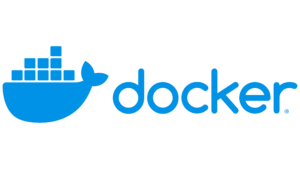mintCast 354.5 – Everyone Has an Opinion (mp3)
1:30 Linux Innards
33:12 Vibrations from the Ether
51:24 Check This Out
53:45 Announcements & Outro
In our Innards section, We discuss chromium and how to pick a distro
And finally, the feedback and a couple suggestions
More Chromium Talk – Leo
- What do we use?
- Chromium-based? Firefox?
- The monoculture…
What’s My Distro? – Moss
As I was just pressed into service on this topic yesterday, some early bits of this article were borrowed from or inspired by the article, “What Does The Penguin Say?” on LinuxInsider.com,
So Windows gives you “Windows the Windows Way”, Mac gives you “Mac the Mac Way”, and Linux gives you… everything you ever dreamed of — or your worst nightmares — in a user salad of options.
Just look at the desktop paradigms.
- Does the desktop try to capture a “traditional” or revolutionary desktop interface paradigm?
- Does it favor sleekness or no-frills functionality?
- Do the developers strive for constant evolution or stability and consistency?
- Are windows, menus, and settings panels minimalist or information-dense?
- Should users accept the UI as it is, or make it their own?
As founder and co-host of Distrohoppers’ Digest, these and other issues come to the fore.
- Which installer does it use, or do they write their own?
- Ubiquity – most Ubuntu, Mint
- Calamares – other Ubuntu, Ubuntu forks, GeckoLinux, and others
- Anaconda – Fedora
- Debian-Installer
- YaST
Now that Ubuntu is setting off writing an all-new installer, this issue is even more timely. How will it be better than Ubiquity? Anyone who has used Calamares has a few answers to that one. But can it be better than Calamares? What about flexibility? Some users of OpenSUSE claim their installer is better than Calamares because it has much more and better options, while others, like me, say those options are not the least understood by most users.
… or does the distro provide a pure image (.img) file, and you have to install GRUB or another bootloader yourself? (EasyOS)
- Which package manager do they use, or do they write their own?
- APT with .deb packages (or .rpm packages, in PCLinuxOS)
- Portage or Entropy
- URPM, dnf
- pacman, pamac
- YUM
- YaST, zypper
- eopkg
- .pup, .snf, you name it
I guess next would be to discuss families, which mostly boils down to:
- Debian Family
- Ubuntu sub-family – probably 90-95% of all desktop Linux users
- Ubuntu
- Ubuntu wannabes, remixes, respins
- Linux Mint
- Indies (Peppermint, FerenOS, Zorin)
- Independents
- Ubuntu sub-family – probably 90-95% of all desktop Linux users
- Slackware Family
- OpenSUSE variants
- Red Hat Family
- Red Hat variants (Fedora, Scientific, CentOS, Rocky, Clear, Oracle)
- Mandrake variants (PCLinuxOS, Mageia, OpenMandriva, Rosa)
- Arch Family (Endeavour, Manjaro)
- Gentoo Family (Sabayon, ChromeOS, Mocaccino, Calculate, Redcore)
- LFS and Homebrew Family (SolusOS, Clear Linux OS)
Then there is the topic of Desktop Environments. We’ve discussed this rather extensively in the past on this show. The major choices are:
- Gnome or variants, which includes Cinnamon and Budgie, as well as forks of earlier versions such as MATE
- KDE Plasma, or forks such as Trinity
- Enlightenment, or forks such as Moksha
- XFCE
- LXDE or LXQt
- Independents such as Deepin, Pantheon, and Lumina
So in terms of complete packages of distros, according to statistics seen by Martin Wimpress, mentioned by Martin Wimpress in the past year or so, but not referenced anywhere public, around 85% of all Linux Desktop users run Ubuntu (Gnome), perhaps 5% run Ubuntu MATE, around 4-5% run Linux Mint, and that leaves 5-6% for everything else. What are the other “everything else”s that I would recommend for new users?
Everyone has an opinion. I’m running 9 different distros across 4 machines, with eight on one machine alone.
It’s the easiest thing in the world to just recommend the main version of Ubuntu or Linux Mint, and you’d be right to do so, but there are others I’d also recommend based on the machine and the user. Right now, my list would include UbuntuDDE Remix, Bodhi Linux, Lubuntu, PCLinuxOS, OpenMandriva, KDE neon, Zorin OS, FerenOS, and PeppermintOS. The first two are the most unusual and forward-looking, and the last three are the easiest to make them look or work the most like Windows 7 or 10. You are of course encouraged to try anything Official or unofficial Ubuntu, including Linux Mint and Pop!_OS. On that list, only OpenMandriva and PCLinuxOS are not Ubuntu-based, and what is missing from that list includes Fedora or OpenSUSE or Arch-based distros.
VIBRATIONS FROM THE ETHER:
- Erik Lietz
- Henrik Hemrin
- wget -O – https://raw.githubusercontent.com/laurent22/joplin/dev/Joplin_install_and_update.sh | bash
- See the start page for the Installation: https://joplinapp.org/
- John Wallis
- [email protected]:
- rc-local.service:
- rescue.service:
- rsync.service:
- rsyslog.service:
- Leo’s Response
- Add the, for example “cramfs”, to this file -> /etc/modprobe.d/blacklist
CHECK THIS OUT!
- Leo
- Via Whosy – Ruffle – Rust Flash player
- Moss
- Raspberry Pi respin of MX Linux is now in beta, you need to grab a copy of their app “Imager” to install it.
- Most anticipated distros of 2021 – I don’t know about them, but I’m waiting for Bodhi 6 still and also Slackware 15
ANNOUNCEMENTS:
Our next episode will be at 2 pm Central US time on February 21, 2021.
Get the show time converted to your time zone!
Wrap-up:
- Joe – www.Tllts.org, www.linuxlugcast.com, MeWe, [email protected]
- Bo – YouTube Undercast Collective
- Moss – It’s MOSS, MeWe, other blogs, music on Bandcamp and on various YouTube channels, [email protected], @[email protected] on Mastodon, [email protected] for quick response, Sponsus!
- Tony Hughes – HPR – http://hackerpublicradio.org/correspondents.php?hostid=338, Occasional Blog https://tony-hughes.blogspot.com/, Twitter @TonyH1212, [email protected], [email protected]
- Tony Watts – [email protected], Echoes of Savages (band)
- Josh Hawk – [email protected], @joshontech on Twitter and most other social sites.
- Leo – leochavez.org and @leochavez on Twitter, [email protected], linuxuserspace.show and you can get your five minute news digest at Full Circle Weekly News. Buy me a coffee!
Before we leave, we want to make sure to acknowledge some of the people who make mintCast possible …
- Owen Peery for our audio editing, Josh Lowe for all his work on the website, Hobstar for our logo, and Londoner for our time sync
- Bytemark Hosting for hosting mintcast.org and our Mumble server
- Archive.org for hosting our audio files
- HPR for our backup Mumble room
- The Linux Mint development team for the fine distro we love to talk about <Thanks, Clem!>
Podcast: Play in new window | Download
Subscribe: RSS




Thanks for decoding the Joplin notes app script, for installation and update of Joplin. I tested your additional suggestion to run the script in Mint start up-applications, but for any reason the script does not kick off, nor any sign of it in system log. I haven’t tried as a cron job, I may, but on the other hand I don’t want it to start to run when I use the application. And it’s quite simple to now and then run the script manually. I like the Joplin app more and more. It works well cross platforms, encrypted, sync works, and I also use Markdown when noting. Again, thanks for looking into the script!